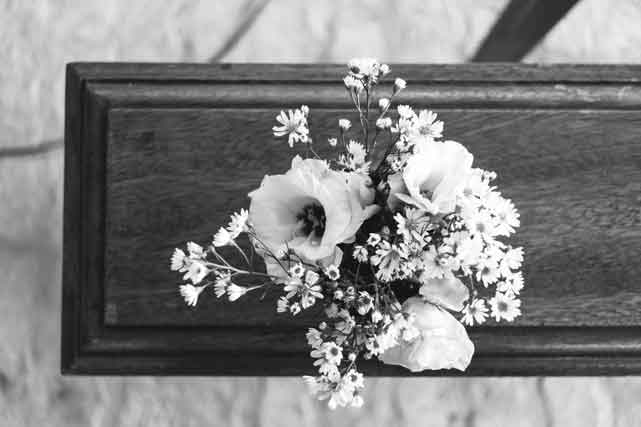Over the weekend I attended a funeral for a friend’s mom. I had never met the woman who died, and honestly my friend and I aren’t super close, but I lost my own mom when I was around her age and I still remember who attended her funeral and how much it meant to me, so I just wanted to show my support. I knew it would be important to her.
The service was in Spanish and the Priest was an older gentleman who mumbled, so to be honest I didn’t understand much of it, but it was a Catholic Mass, and they have a certain flow to them so even though I didn’t understand the Priest, I could follow along and recite the responses in English. He totally lost me during the sermon though, and so as I looked around at the grieving family members and friends, I reflected on the comfort of ritual in our lives. Not only the ritual of a predictable religious service, but how rituals provide us with a sense of belonging and comfort.
While each religion treats death differently, they all embrace a ritual to send their loved ones off into the afterlife, whatever they believe that to be. While you may argue whether or not the ritual does anything for the deceased, it does provide a sense of predictability and closure to those left behind.
Looking down the aisle at a casket that held the body of a woman not much older than I, it was tough not to contemplate my own mortality. Once we approach, or pass, the halfway point in our lives, some of us may decide to buy a red convertible and have an affair, but I prefer to use this time to reflect on whether I have done enough.
Now for the record, I am totally freaked out by graveyards so truly hope that when my time comes you’ll take out a kickass yacht, throw my ashes over Biscayne Bay and toast me with the best damn Margaritas pesos can buy. But I do hope that when that day comes, I will feel like I have left my mark on the world, and that I have done enough.
For me, doing enough is a combination of what I have done for my family and friends, but also the company I’m building. No pressure, but I have several families whose livelihood depends on the decisions I make and I’d like to think that can continue after I’m gone.
The most successful companies embrace a combination of purpose and ritual. They set a compelling vision but use ritual, or process, to make it easier for people to get there. In one of my favorite books, “Built To Last”, Jim Collins studied companies like Disney and other corporations close to or beyond their centennial, to see what factors contributed to their longevity. He discovered three things;
- They have a clear vision and sense of where they need to go, even though they know that individual products and services will all become obsolete at some point, and
- They use profit like oxygen to fuel their purpose, but not as their purpose, and
- They are obsessed with succession planning and the processes that will allow the company to carry forward after they’re gone.
Those processes are the rituals that reassure our teams and give them the foundation to make their own decisions and take risks. I spent 26 years buried in the processes of Corporate America, and while I hated how rigid they were, I recognize now that being too far in the other direction and lacking process makes people uncomfortable.
We humans are creatures of habit and we love ritual.
So that’s basically it. Know where you want to go. Make sure you have enough fuel to get there, and hire a backup driver.
As I reflected on my business this week, I realized that as obsessed as I am with documenting what we do, it’s not nearly enough. The more we can build that solid foundation, the more we can focus on growth, because delivery can take care of itself.
I watched a Masterclass this week with Bob Iger, Disney CEO, one of the Good To Great companies. His typical day begins at 4:15 at the gym, and then he’s at the office by 6, so he can focus and get work done before everyone arrives. He’s in meetings or traveling each day, then leaves for home at 4, spends time with his family, spends a couple of more hours working in the evening, then goes to bed. He’s running a company that makes close to $70 billion in annual revenue.
I wonder what a little more ritual could do for the longevity of all of our companies?

